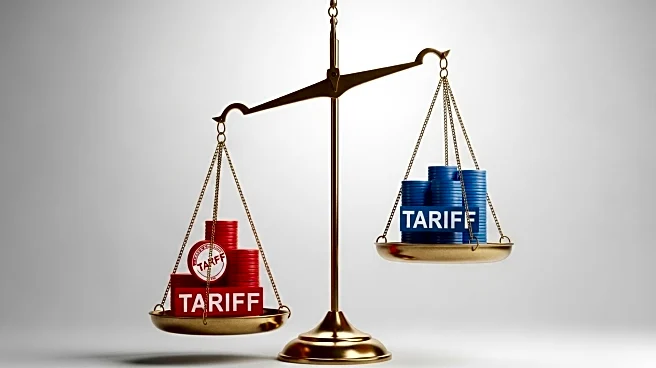What's Happening?
The Supreme Court will quickly assess the legality of President Trump's tariffs, a pivotal case that could impact the U.S. economy and global trade. The tariffs, central to Trump's trade war, have been challenged by small businesses and states, arguing they cause economic harm. The case questions Trump's use of the International Emergency Economic Powers Act to impose tariffs, a move critics say exceeds presidential authority. The court's decision could redefine executive power in economic matters, with arguments set for November.
Why It's Important?
The case is crucial as it tests the limits of presidential authority in economic policy. Trump's tariffs have affected trade relations and contributed to economic uncertainty, with potential impacts on inflation and consumer prices. A ruling against Trump could lead to significant refunds of collected tariffs, affecting government revenue and economic stability. The decision will also influence future presidential actions and the balance of power between the executive and legislative branches. The outcome could reshape U.S. trade policy and international economic relations.
What's Next?
The Supreme Court's ruling, expected by June, could have far-reaching consequences for U.S. trade policy and economic strategy. If the court finds Trump's tariffs illegal, the administration may need to refund up to $1 trillion in tariffs, disrupting economic plans. The decision could also affect ongoing trade negotiations and agreements. Stakeholders, including businesses and states, are closely watching the case, as it could redefine the scope of presidential powers in economic matters.










